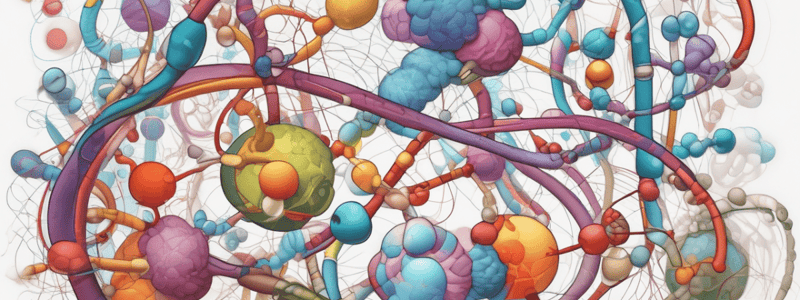Podcast
Questions and Answers
What is the process by which DNA makes a copy of itself?
What is the process by which DNA makes a copy of itself?
- Transcription
- Translation
- Gene expression
- Replication (correct)
During which process is genetic information in mRNA converted into a sequence of amino acids?
During which process is genetic information in mRNA converted into a sequence of amino acids?
- Replication
- Transcription
- Gene regulation
- Translation (correct)
What is the result of the translation process?
What is the result of the translation process?
- A segment of RNA
- A sequence of amino acids (correct)
- A copy of DNA
- A sequence of nucleotides
What is the process by which a segment of DNA is copied into RNA?
What is the process by which a segment of DNA is copied into RNA?
In which process is RNA not directly involved?
In which process is RNA not directly involved?
Flashcards are hidden until you start studying
Study Notes
Central Dogma Definitions
- Replication: The process of creating an exact copy of DNA, ensuring genetic material is duplicated accurately.
- Transcription: The process of creating a complementary RNA copy from a specific DNA segment, which carries genetic information.
- Translation: The process where ribosomes use mRNA as a template to build a sequence of amino acids, resulting in protein synthesis.
Studying That Suits You
Use AI to generate personalized quizzes and flashcards to suit your learning preferences.




